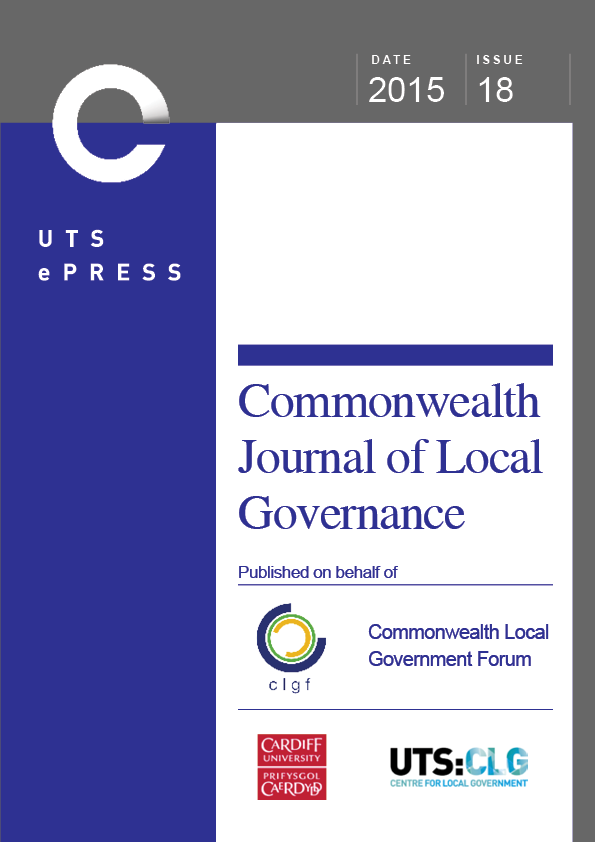Network governance and capacity of local governments to deliver LED in Uganda
Main Article Content
Abstract
This paper discusses network governance and its contribution to the capacity of local governments (LGs) to deliver local economic development (LED) in Uganda. Although a formal LED policy was only established in Uganda in February 2014, there have been LED-inspired practices in the past decade. Various scholars and practitioners have observed that the autonomy and capacity of LGs to deliver LED is limited, but have been hopeful that new governance strategies like network governance would increase the capacities of LGs. However, neither network governance arrangements among LGs, nor their potential to improve governance capacity, have been documented. In a case study of Kyenjojo District, this paper finds that existing network governance arrangements have been fundamental in improving financial autonomy at this LG, delivering some income to invest in LED activities, although no evidence was found of reduced transaction costs in transforming local economies. The study further reveals that network governance arrangements have not led to the development of specialised skills in regulation or law enforcement, and capacity gaps are evident amongst staff and members in understanding the private sector and how it works. On a positive note, there is clear evidence of attempts by the LG to be innovative. Based on these findings, this study recommends that LGs need to consider a multi-pronged or multi-network governance approach to LED, which in turn will require a refocusing of governance mechanisms to become more dynamic and responsive, and offer incentives to the various actors in the development sector.
Article Details
Issue
Section
Authors who submit articles to this journal from 31st March 2014 for publication, agree to the following terms:
a) Authors retain copyright and grant the journal right of first publication with the work simultaneously licensed under a Creative Commons Attribution License that allows others to share and adapt the work with an acknowledgement of the work's authorship and initial publication in this journal.
b) Authors are able to enter into separate, additional contractual arrangements for the non-exclusive distribution of the journal's published version of the work (e.g., post it to an institutional repository or publish it in a book), with an acknowledgement of its initial publication in this journal.
c) Authors are permitted and encouraged to post their work online (e.g., in institutional repositories or on their website) prior to and during the submission process, as it can lead to productive exchanges, as well as earlier and greater citation of published work (See The Open Access Citation Advantage Service). Where authors include such a work in an institutional repository or on their website (ie. a copy of a work which has been published in a UTS ePRESS journal, or a pre-print or post-print version of that work), we request that they include a statement that acknowledges the UTS ePRESS publication including the name of the journal, the volume number and a web-link to the journal item.
d) Authors should be aware that the Creative Commons Attribution (CC-BY) License permits readers to share (copy and redistribute the work in any medium or format) and adapt (remix, transform, and build upon the work) for any purpose, even commercially, provided they also give appropriate credit to the work, provide a link to the license, and indicate if changes were made. They may do these things in any reasonable manner, but not in any way that suggests you or your publisher endorses their use.
For Issue 13/14, and all issues before, the following copyright applied:
Authors submitting a paper to UTS ePRESS publications agree to assign a limited license to UTS ePRESS if and when the manuscript is accepted for publication. This license allows UTS ePRESS to publish a manuscript in a given issue. Articles published by UTS ePRESS are protected by copyright which is retained by the authors who assert their moral rights. Authors control translation and reproduction rights to their works published by UTS ePRESS. UTS ePRESS publications are copyright and all rights are reserved worldwide. Downloads of specific portions of them are permitted for personal use only, not for commercial use or resale. Permissions to reprint or use any materials should be directed to UTS ePRESS via the journal's main editor, Alison Brown, journal@clgf.org.uk
